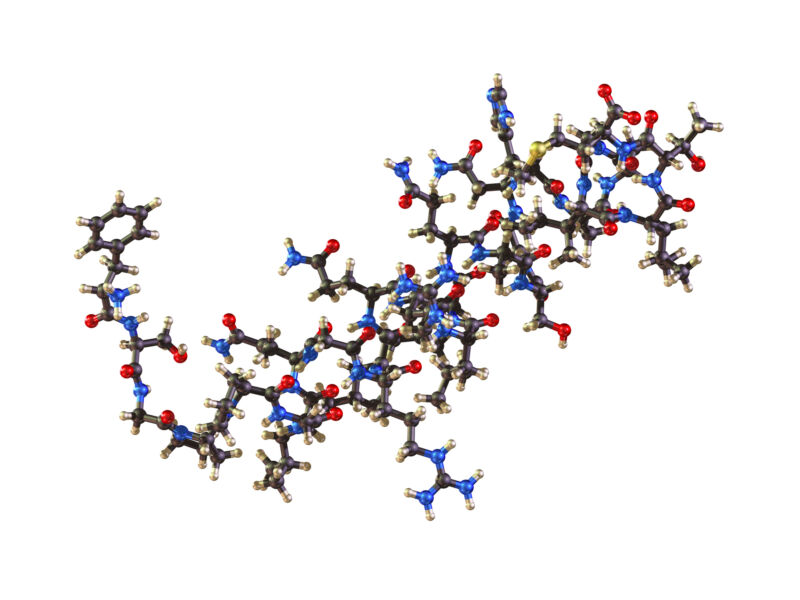

Did an NYU professor get fired because students hate organic chem?
source link: https://arstechnica.com/science/2022/10/did-an-nyu-professor-get-fired-because-students-hate-organic-chem/
Go to the source link to view the article. You can view the picture content, updated content and better typesetting reading experience. If the link is broken, please click the button below to view the snapshot at that time.
Organic vegetables —
Did an NYU professor get fired because students hate organic chem?
There's a lot to the recent firing, most of it centered on how to best serve students.
John Timmer - 10/5/2022, 10:07 PM

Over the weekend, news broke that a well-regarded professor who taught chemistry at New York University had been fired after students complained about their grades, his teaching, and the support they received during the pandemic. The story has garnered wide attention because it seems to have a little something for everyone—students taking over the education system, the chaos of our not-quite-post-COVID world, and more.
Largely left out of the discussion is the role of the subject matter of the course at issue: organic chemistry, which has an almost mythical status as one of the most difficult classes in undergraduate science education. For those willing to wade past all the other issues raised, the events raise awkward questions about what we expect from science education and how best to deliver it.
But to get to those questions, we'll first have to wade through all the additional issues raised by the firing.
Higher ed issues
Maitland Jones, Jr., the fired professor, taught at NYU after semi-retiring from an earlier academic career at Princeton University. Jones is widely credited for rethinking how organic chemistry is taught and has written an organic chem textbook centered on his teaching ideas. But, at 84 years old, he told The New York Times that he was thinking of retiring soon.
His schedule got accelerated after students ran into issues during the 2021-2022 teaching year, which culminated in about a quarter of his class of 350 students signing a petition that does not seem to be publicly available. According to the Times, some complaints were simply about grades, with students having only a few midterms, one with a mean grade in the 30 percent range. But it also reportedly mentioned that the students weren't given sufficient resources to succeed and that Jones wasn't always supportive when students asked him for help.
The petition did not call for Jones' firing. But that's the action that NYU administrators took in response. That decision has been criticized by other faculty at NYU, teaching assistants, and some of Jones' students. In a statement given to Reason, an NYU spokesman defended the firing by also noting high student withdrawals and bad course evaluations.
AdvertisementThese events are probably attracting some attention because they fit nicely with a couple of popular narratives about failings in the modern university system. As tuitions have skyrocketed, there's been a temptation to treat degrees as products and students as customers that need to be drawn in and kept satisfied. Attracting more students also boosts tuition income, but having 350 students in a chemistry class can tend to limit student satisfaction, which may have been a factor in the complaints.
Some takes on the modern university system suggest that the desire to keep students happy has left administrators caving to their demands, essentially placing the inmates in control of the asylum. The degree to which these narratives are accurate is hotly debated. But it's easy to see how Jones' firing after student complaints lines up nicely with them. That means a lot of people are going to interpret it strictly through that lens. But there's a lot more going on here, including when Jones ran afoul of his students.
Post-pandemic teaching?
The class that had issues with Jones' performance was held at the end of the 2021-2022 school year when many campuses attempted to have their first "normal" academic year since the start of the COVID-19 pandemic. Since the pandemic hasn't ended, students and faculty are still dealing with waves of infections that sweep through campuses, disrupting almost every aspect of education. But some of the problems mentioned by Jones' students suggest that they were a hangover from the even more pronounced chaos of the year prior.
Organic chemistry is normally a sophomore-year class, meaning the students would have spent their first year of college having it turned upside-down by a pandemic that was most decidedly not over. The arrival of vaccines and the Delta wave led to rapidly shifting policies, sporadic campus closures, and frequent student absences.
That could be a significant contributor to some of the problems this cohort of students is experiencing. One of the underrated aspects of the first year of college is that students are compelled to figure out how to process the firehose of information that college throws at people—students figure out how to learn in some ways. And that process was completely disrupted by the chaos of mid-pandemic schooling.
It's not clear how best to support the students who find themselves thrown into higher-level classes without the skills developed in intro-level courses. But two things should be clear: NYU's organic chemistry students aren't the only ones experiencing this problem, and any solutions should involve a lot more than just firing any professors who aren't helping the students get up to speed.
Recommend
About Joyk
Aggregate valuable and interesting links.
Joyk means Joy of geeK